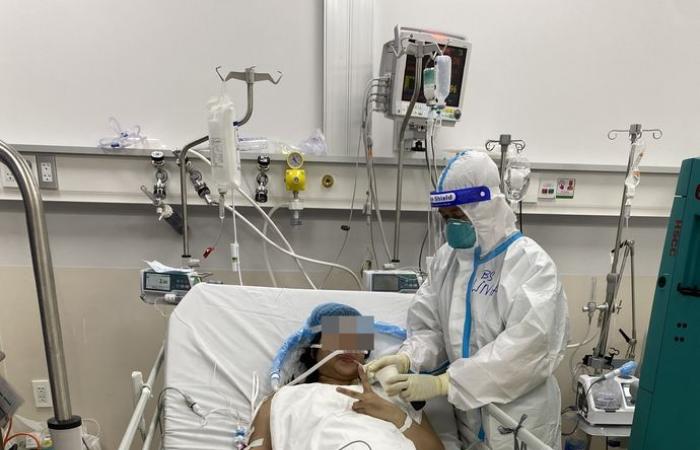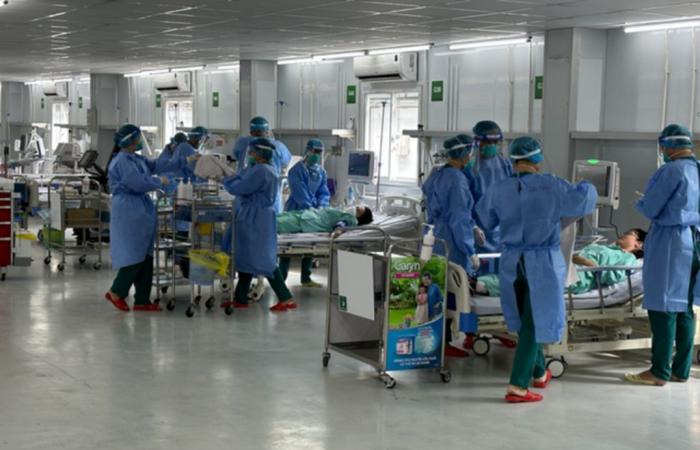>> Vaccination of children against measles in schools
>> Ho Chi Minh City continues to encourage investment in medical projects
| District level health staff are still overloaded. |
“Early detection of signs of depression or suicide risk is important, especially in stressful medical environments. Hospital leaders must actively participate in the process of establishing a system of detection and psychological support for their staff , in order to avoid unfortunate consequences”said Nguyên Van Vinh Châu, deputy director of the Ho Chi Minh City Health Department during the seminar “Preliminary report of mental health care activities for medical personnel in Ho Chi Minh City”.
Doctor Bùi Nguyên Thanh Long, deputy head of the medical operations department of the Municipal Health Department, gave figures from a survey conducted among 382 city medical staff, showing that nearly 20% of workers suffer from depression, 22.8% anxiety and 14.2% stress, 3 mental health disorders that require intervention. Studies show that their causes lie in work overload, night shifts and public holidays. Medical staff do not have much time to rest, relax or spend time with family and do not receive any psychological support. Data also shows that mental health risks vary between health care settings. Specifically, medical personnel at the district level have a higher risk of depression than at the city, private sector, and university levels. Public health workers are at higher risk of depression, anxiety, and stress than private sector health care workers.
Regardless, according to him, understanding and awareness of mental health within medical teams remains very low everywhere. When faced with these disorders, most healthcare workers focus on the physical symptoms and manage them on their own. The rate of medical personnel seeking professional support is minimal, with most sharing difficulties only with loved ones. There are currently three major barriers to mental health care for healthcare workers. Fear of social stigma, which leads them to fear that their mental health problems will be recorded in their personal file or known to others. The belief that the problem will probably get better on its own. And a third barrier, they don’t know where to get professional mental health support and can’t afford it.
Mr Thanh Long encourages medical staff to have the courage to seek help for mental health problems, and to use available services and search for relevant materials. For managers at all levels, a policy to improve additional income for medical staff should be put in place, including organizing free knowledge-sharing courses on mental health and building relaxation rooms for staff medical at work…
| Mental health care for medical staff was essential. |
The Dr Nguyên Van Vinh Châu said mental health care for medical personnel was indispensable and should be implemented as soon as possible. Healthcare facilities should have plans to provide resources, guidance and mental health awareness to staff, not only for early detection but also to prevent physical and mental burnout syndromes. It is important to detect early signs of depression or suicide risk, especially in stressful medical environments. Hospital managers must actively participate in the process of establishing a system of detection and psychological support for employees in order to avoid unfortunate consequences.
According to this leader, mental health care for medical personnel must become regular and not just one-off campaigns. Hospital leaders must view mental health care for workers as important as investments in the facility. Additionally, eliminating stereotypes about mental health is an important factor in creating an open work culture, allowing medical staff to be able to freely share their psychological issues without fear of being judged or sanctioned.
Text and photos: Quang Chau/CVN







